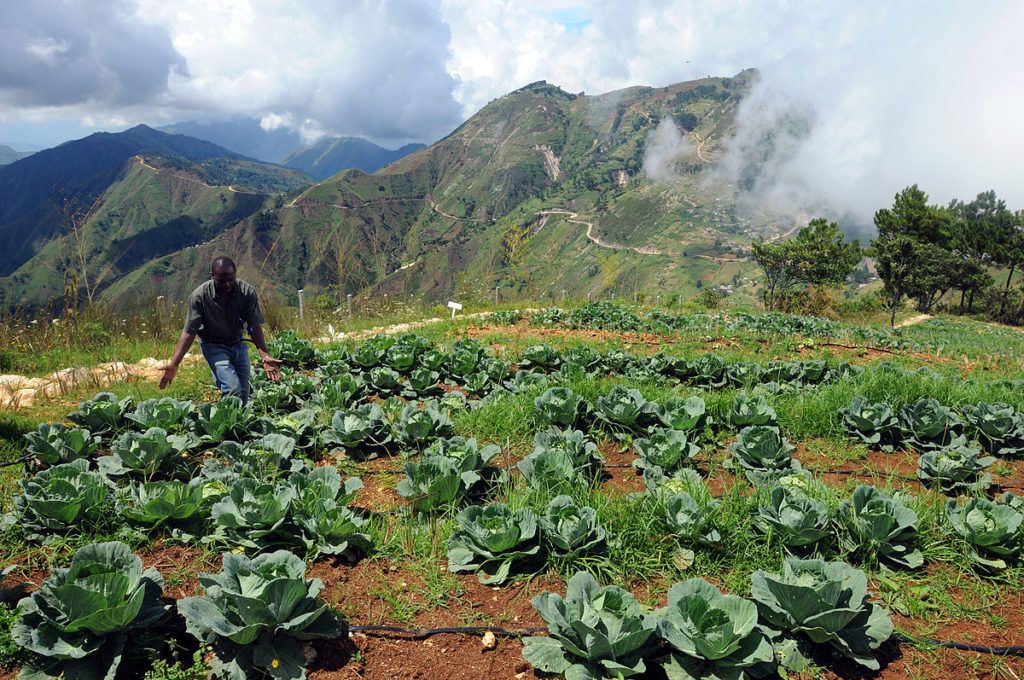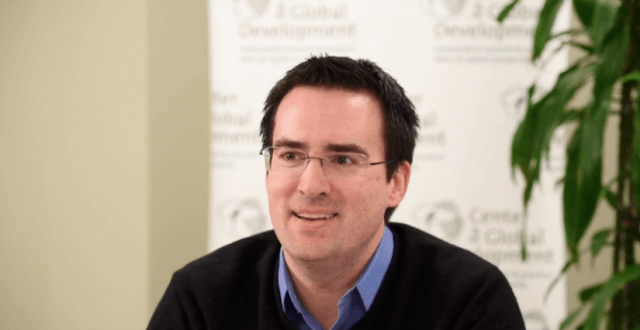Michael Clemens. Credit: YouTube

This is the eighth nomination to UnHerd’s week-long list of some notable “Free Minds’. By their independence of intellect, clarity of vision and their courage in often defying powerful encouragements within universities, political parties and other public institutions to conform – they are essential agents of civilisation.
There’ll be a couple more nominees in the next 72 hours, so please follow us on Twitter to ensure you are notified of these and other UnHerd postings.
And please use the “HAVE YOUR SAY” button if you have any views on what you’ve read – or if you’d like to nominate another ‘Free Mind’.
I first came across the work of the development economist Michael Clemens when I began to investigate the aid industry almost a decade ago. It struck me as odd there was this hallowed international target for wealthy countries to hand over 0.7 per cent of national income to help poorer places. Then I stumbled on a paper he had written with a colleague in 2005 that laid bare the folly of this concept, explaining its unscientific origins and pointing out that updating the figures would mean an aid goal of just 0.01 per cent for rich nations. And that was 13 years ago, since when the world has become significantly wealthier.
Clemens, 45, is one of the most important and courageous global thinkers. That work on the aid target underlined his free-thinking approach, with rigorous reliance on data regardless of the conclusion. Colleagues at the Center for Global Development think tank in Washington – where he is a senior fellow – say he is remorseless in pushing them to always focus on evidence over ideology.

Two years later, I was working on a story in Ghana about the Millennium Villages. This daft idea was pushed by the pugnacious aid guru Jeffrey Sachs, who persuaded international donors, including Britain, to pour huge sums into his pet project. Clemens had, quite rightly, raised serious issues over imprecise evidence. I was struck by his tenacity in fighting his corner when the celebrated Colombia professor hit back. Although I suspect he is sceptical on much aid, Clemens won an award for a shared paper suggesting donations can assist growth despite wide variety of results and diminishing impact at higher levels.
Yet his key work has been on migration – arguably the biggest issue of our age. And the reason his studies are so important is simple: Clemens is the first key thinker to focus hard on people rather than places when it comes to immigration. So instead of just examining if rich and poor nations benefit or lose from movement of individuals, he looks at the impact on those uprooting their lives to move across borders. “Labour mobility does more to extend opportunity and prosperity to poor people in some settings than anything else we have thought of,” he argues. “And can do a lot more if we chose to unleash its power.”
He calls this “the place premium” – the fact that your lifestyle, value and worth depends not on education, endeavours, skills and talent but largely on the chances of where you live. This may seem obvious. Yet the differentials raise profound moral and social questions. Why, for instance, should a low-skilled worker in Cambodia earn six times less than a low-skilled worker who happened to be born in California? Or a Moldovan nurse take home ten times less than one from Manchester? And what does it mean for humanity when one quarter of those Haitians who have escaped the poverty trap live in the United States?
Clemens was one of the few people in the development world to emerge from the 2010 Haiti earthquake fiasco with their reputation enhanced. Armed with his data, the economist led a successful campaign in the United States to get Haitians made eligible for low-skill temporary work visas. His argument was simple and correct: that the economic impact of migration, combined with remittances sent home, would be far more help to the shattered nation than the massive (and appallingly inept) foreign aid effort.
The Utah-raised academic, who has worked in Brazil, Colombia and Turkey, points out that one simple policy could make the world twice as rich: open borders. His 2011 paper on the subject was called Trillion Dollar Bills on the Sidewalk. He argues that potential benefits dwarf more popular ideas such as free trade and foreign aid, with even modest relaxation of barriers to human mobility bringing about more prosperity than elimination of all remaining legal barriers to movement in goods and capital.
This is challenging stuff, especially in the current political climate. Like any decent thinker, this modest man manages to provoke both sides of political debate. So the Right dislike his data showing that Haitian farmworkers on those temporary visas in Alabama added $4,000 to the United States economy per worker, per month. And the Left dislike his demolition of the idea of the brain drain, such as when he showed the immorality and ineffectiveness of policies designed to stop Britain’s national health service from hiring foreign medical staff.
Clemens prompts us to consider big questions too readily taken for granted about the lottery of life. But he also offers solutions: his “global skills partnerships” idea – suggesting rich countries with labour shortages might set up training centres in poorer nations with excess labour to benefit both sides – offers sense for a Europe that sits beside Africa with its population explosion. He provides an essential voice in a world infused with narrow-minded nationalism, offering evidence and humane suggestions whether we listen or not.










Join the discussion
Join like minded readers that support our journalism by becoming a paid subscriber
To join the discussion in the comments, become a paid subscriber.
Join like minded readers that support our journalism, read unlimited articles and enjoy other subscriber-only benefits.
Subscribe